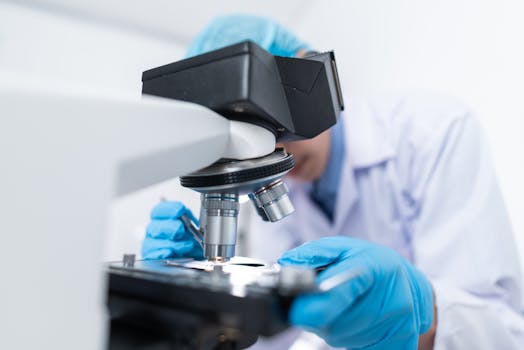
Pharmacist Competitive Exams
About
Important Questions, practice tests, previous year questions and revision notes for preparation of pharmacist competitive exams like AIIMS Pharmacist, CGHS Pharmacist, ESIC Pharmacist etc. and many more state level and central healthcare exams.Updates
All
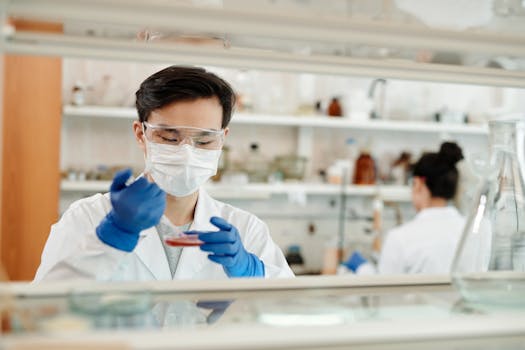
Pharmacology Chapter 1 Revision: Key One-Liner Questions for Pharmacist Exams
This post contains important one-liner questions in pharmacology which will help you to understand the basic terms in the pharmacology subject and strengthens you for the various competitive pharmacy exams.
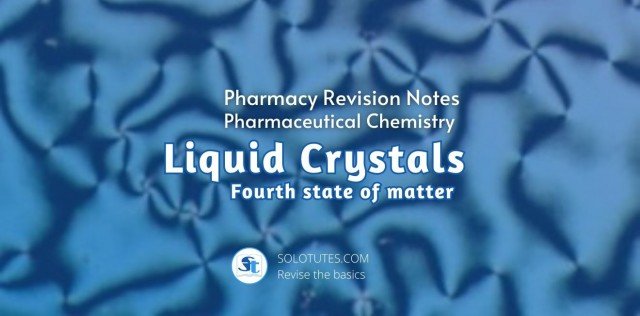
Liquid Crystals: The Fourth State of Matter in Pharmacy
Liquid crystals, the fourth state of matter, exhibit an intermediate order between liquids and crystals. Divided into thermotropic and lyotropic classes, they include high molar mass polymers and low molar mass materials like discotic and rod-like molecules. Rod-like liquid crystals, such as nematic and chiral nemetic, display unique orientational patterns. Applications in pharmacy range from super-strength polymers for drug delivery to liquid crystal thermography for evaluating medical conditions.
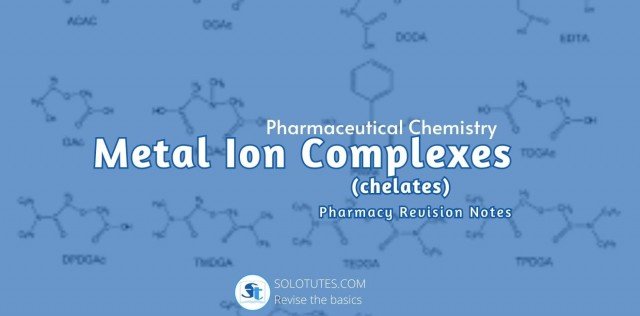
Metal Ion Complexes: Coordination Bonds, Chelates, and Applications
Explore the metal ion complexes, where central metallic ions bond with ligands to form coordination bonds. Learn about inorganic and chelate complexes, with examples of bidentate, tridentate, and polydentate ligands. Discover the applications of chelates, from water softeners to heavy metal detoxification, highlighting their role in various fields.
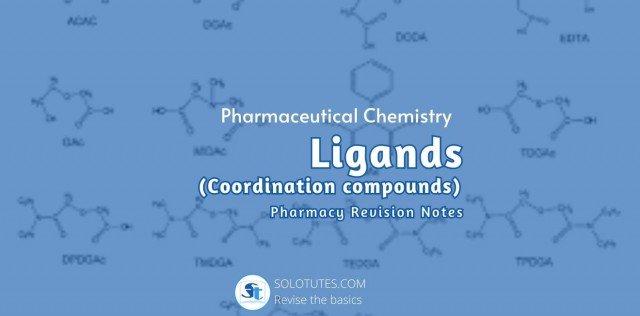
Ligands: Building Blocks of Coordination Chemistry
coordination compounds, also known as complexes, arising from Lewis acid-base reactions. Understand the crucial roles of ligands and metal ions in forming coordinate covalent bonds. Distinguish monodentate and polydentate ligands, unraveling their diverse structures and contributions to complex formation. Gain insights into the distinct properties of coordination compounds, setting them apart from their individual components.
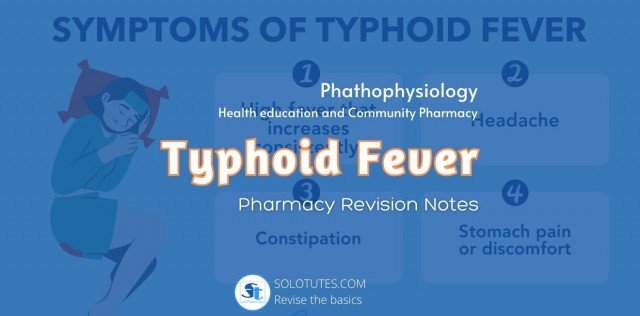
Typhoid Fever: An In-depth Exploration of Causes, Pathophysiology, Epidemiology, Treatment, and Prevention
Typhoid Fever, also known as enteric fever, is caused by Salmonella typhi bacteria. Explore its pathophysiology, from mucosal interactions to reticuloendothelial tissue invasion. Understand the global epidemiology, prevalence in developing nations, and its impact on public health. Uncover symptoms, complications, and the evolution of treatment, now primarily managed with antibiotics. Discover prevention measures, emphasizing hygiene, safe water practices, and cautious food choices to shield against this infectious illness.
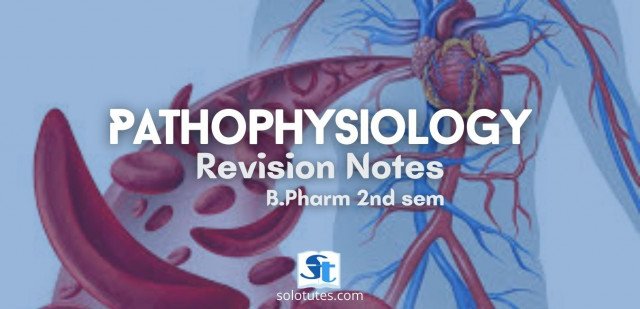
Inflammation: Acute vs. Chronic and Basic Mechanisms
Explore the intricacies of inflammation, classified into acute and chronic responses. Acute inflammation, of short duration, marks the early body reaction and subsequent healing. Chronic inflammation, lasting longer, involves persistent causative agents or continuous stimuli, characterized by the presence of inflammatory cells. Delve into the basic mechanisms of inflammation, including vascular events and cellular processes like leukocyte exudation and phagocytosis.

Pharmacy notes: Acidosis and Alkalosis in Phathophysiology
Alkalosis is excessive blood alkalinity caused by an overabundance of bicarbonate in the blood or a loss of acid from the blood (metabolic alkalosis), or by a low level of carbon dioxide in the blood that results from rapid or deep breathing (respiratory alkalosis). Acidosis is caused by an overproduction of acid in the blood or an excessive loss of bicarbonate from the blood (metabolic acidosis) or by a build-up of carbon dioxide in the blood that results from poor lung function or depressed breathing (respiratory acidosis).
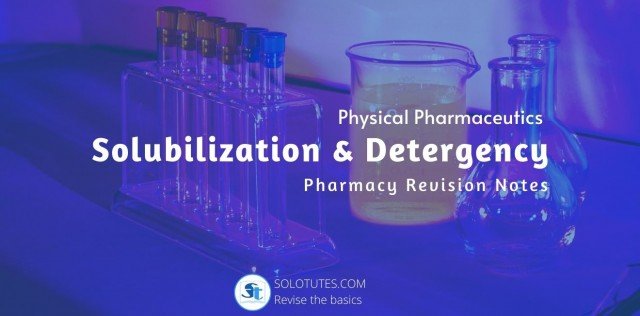
Pharmacy Notes: Solubilization and Detergency in Physical Pharmaceutics
Solubilization, introduced by Mc Bain in 1937, involves dissolving poorly soluble solutes in water using surfactants, forming thermodynamically stable solutions through micelle formation. Critical micelle concentration (CMC) is key, and this technique is exemplified by the enhanced solubility of cresol with soap solution. Detergency, a complex surfactant-driven process, utilizes characteristics like solubilizing, emulsifying, and wetting to remove foreign matter from solid surfaces by reducing interfacial tensions.

Tuberculosis Information: Causes, Symptoms, Treatment, and Prevention
Explore a comprehensive guide on Tuberculosis (TB) - its causes, symptoms, treatment, and prevention. Learn about Mycobacterium tuberculosis, the bacterium behind TB, and understand the clinical manifestations from initial infection to active disease.

Interesting facts about Carbohydrates
10 interesting facts

Packaging Material
Pharmaceutical Packaging: is the means of providing protection, presentation, identification, Information and convenience to encourage compliance with a course of therapy.

one liners organic chemistry file-11
This post contains some one liners of Organic Chemistry. These will help you to strengthen your basics in Organic Chemistry.

one liner| organic| B.pharmacy| Pharmacy one liners |organic chemistry| B.pharmacy file-10
This post contains some one liners of Organic Chemistry. These will help you to strengthen your basics in Organic Chemistry.

one liner| organic| B.pharmacy| Pharmacy one liners |organic chemistry| B.pharmacy file-8
This post contains some one liners of Organic Chemistry. These will help you to strengthen your basics in Organic Chemistry.

one liner| organic| B.pharmacy| Pharmacy one liners |organic chemistry| B.pharmacy file-9
This post contains some one liners of Organic Chemistry. These will help you to strengthen your basics in Organic Chemistry.

one liner| organic| B.pharmacy| Pharmacy one liners |organic chemistry| B.pharmacy file-1
This post contains some one liners of Organic Chemistry. These will help you to strengthen your basics in Organic Chemistry.

one liner| organic| B.pharmacy| Pharmacy one liners |organic chemistry| B.pharmacy file-2
This post contains some one liners of Organic Chemistry. These will help you to strengthen your basics in Organic Chemistry.

one liner| organic| B.pharmacy| Pharmacy one liners |organic chemistry| B.pharmacy file-3
This post contains some one liners of Organic Chemistry. These will help you to strengthen your basics in Organic Chemistry.

one liner| organic| B.pharmacy| Pharmacy one liners |organic chemistry| B.pharmacy file-4
This post contains some one liners of Organic Chemistry. These will help you to strengthen your basics in Organic Chemistry.
Recruitment/Jobs
Updates
Revision Notes

Pharmacology Chapter 1 Revision: Key One-Liner Questions for Pharmacist Exams
This post contains important one-liner questions in pharmacology which will help you to understand the basic terms in the pharmacology subject and strengthens you for the various competitive pharmacy exams.

Liquid Crystals: The Fourth State of Matter in Pharmacy
Liquid crystals, the fourth state of matter, exhibit an intermediate order between liquids and crystals. Divided into thermotropic and lyotropic classes, they include high molar mass polymers and low molar mass materials like discotic and rod-like molecules. Rod-like liquid crystals, such as nematic and chiral nemetic, display unique orientational patterns. Applications in pharmacy range from super-strength polymers for drug delivery to liquid crystal thermography for evaluating medical conditions.

Metal Ion Complexes: Coordination Bonds, Chelates, and Applications
Explore the metal ion complexes, where central metallic ions bond with ligands to form coordination bonds. Learn about inorganic and chelate complexes, with examples of bidentate, tridentate, and polydentate ligands. Discover the applications of chelates, from water softeners to heavy metal detoxification, highlighting their role in various fields.

Ligands: Building Blocks of Coordination Chemistry
coordination compounds, also known as complexes, arising from Lewis acid-base reactions. Understand the crucial roles of ligands and metal ions in forming coordinate covalent bonds. Distinguish monodentate and polydentate ligands, unraveling their diverse structures and contributions to complex formation. Gain insights into the distinct properties of coordination compounds, setting them apart from their individual components.

Typhoid Fever: An In-depth Exploration of Causes, Pathophysiology, Epidemiology, Treatment, and Prevention
Typhoid Fever, also known as enteric fever, is caused by Salmonella typhi bacteria. Explore its pathophysiology, from mucosal interactions to reticuloendothelial tissue invasion. Understand the global epidemiology, prevalence in developing nations, and its impact on public health. Uncover symptoms, complications, and the evolution of treatment, now primarily managed with antibiotics. Discover prevention measures, emphasizing hygiene, safe water practices, and cautious food choices to shield against this infectious illness.

Inflammation: Acute vs. Chronic and Basic Mechanisms
Explore the intricacies of inflammation, classified into acute and chronic responses. Acute inflammation, of short duration, marks the early body reaction and subsequent healing. Chronic inflammation, lasting longer, involves persistent causative agents or continuous stimuli, characterized by the presence of inflammatory cells. Delve into the basic mechanisms of inflammation, including vascular events and cellular processes like leukocyte exudation and phagocytosis.

Pharmacy notes: Acidosis and Alkalosis in Phathophysiology
Alkalosis is excessive blood alkalinity caused by an overabundance of bicarbonate in the blood or a loss of acid from the blood (metabolic alkalosis), or by a low level of carbon dioxide in the blood that results from rapid or deep breathing (respiratory alkalosis). Acidosis is caused by an overproduction of acid in the blood or an excessive loss of bicarbonate from the blood (metabolic acidosis) or by a build-up of carbon dioxide in the blood that results from poor lung function or depressed breathing (respiratory acidosis).

Pharmacy Notes: Solubilization and Detergency in Physical Pharmaceutics
Solubilization, introduced by Mc Bain in 1937, involves dissolving poorly soluble solutes in water using surfactants, forming thermodynamically stable solutions through micelle formation. Critical micelle concentration (CMC) is key, and this technique is exemplified by the enhanced solubility of cresol with soap solution. Detergency, a complex surfactant-driven process, utilizes characteristics like solubilizing, emulsifying, and wetting to remove foreign matter from solid surfaces by reducing interfacial tensions.

Tuberculosis Information: Causes, Symptoms, Treatment, and Prevention
Explore a comprehensive guide on Tuberculosis (TB) - its causes, symptoms, treatment, and prevention. Learn about Mycobacterium tuberculosis, the bacterium behind TB, and understand the clinical manifestations from initial infection to active disease.

Interesting facts about Carbohydrates
10 interesting facts

Packaging Material
Pharmaceutical Packaging: is the means of providing protection, presentation, identification, Information and convenience to encourage compliance with a course of therapy.

one liners organic chemistry file-11
This post contains some one liners of Organic Chemistry. These will help you to strengthen your basics in Organic Chemistry.

one liner| organic| B.pharmacy| Pharmacy one liners |organic chemistry| B.pharmacy file-10
This post contains some one liners of Organic Chemistry. These will help you to strengthen your basics in Organic Chemistry.

one liner| organic| B.pharmacy| Pharmacy one liners |organic chemistry| B.pharmacy file-8
This post contains some one liners of Organic Chemistry. These will help you to strengthen your basics in Organic Chemistry.

one liner| organic| B.pharmacy| Pharmacy one liners |organic chemistry| B.pharmacy file-9
This post contains some one liners of Organic Chemistry. These will help you to strengthen your basics in Organic Chemistry.

one liner| organic| B.pharmacy| Pharmacy one liners |organic chemistry| B.pharmacy file-1
This post contains some one liners of Organic Chemistry. These will help you to strengthen your basics in Organic Chemistry.

one liner| organic| B.pharmacy| Pharmacy one liners |organic chemistry| B.pharmacy file-2
This post contains some one liners of Organic Chemistry. These will help you to strengthen your basics in Organic Chemistry.

one liner| organic| B.pharmacy| Pharmacy one liners |organic chemistry| B.pharmacy file-3
This post contains some one liners of Organic Chemistry. These will help you to strengthen your basics in Organic Chemistry.

one liner| organic| B.pharmacy| Pharmacy one liners |organic chemistry| B.pharmacy file-4
This post contains some one liners of Organic Chemistry. These will help you to strengthen your basics in Organic Chemistry.
Practice
Syllabus
on development...Reviews
on development...
.png)
